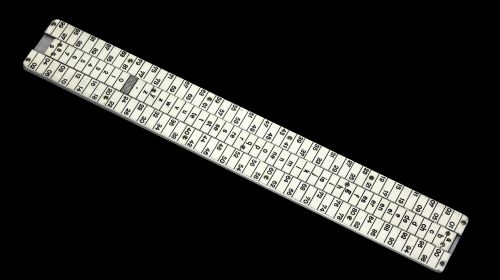Massachusetts High Court Set to Rule on Whether State Can Force You to Decrypt Your Drive


Can the government force you to decrypt your hard drive? Do the Fifth Amendment of the United States Constitution and Article 12 of the Massachusetts Declaration of Rights protect us from being compelled to disclose or enter our encryption keys, and thereby potentially incriminate ourselves? The answer to these questions in Massachusetts hinges on the Supreme Judicial Court’s upcoming decision about whether decrypting a computer is like giving someone a key or a combination to a safe, or instead, if it’s like translating words from one language to another.
In an filed this week by the national ACLU, ACLU of Massachusetts, EFF, and the Cyberlaw clinic at the Berkman Center for Internet and Society at Harvard Law School, our attorneys argue that decrypting files is not like unlocking a door or even providing a combination to a safe. Encrypted files are scrambled messages. When we decrypt them, we aren’t unlocking them -- we are creating new records. Moreover, forced decryption reveals information about our possession of, access to, and control over the files.
For these reasons, the government can’t force us to do it, even if it obtains a warrant to seize the encrypted devices. Indeed, in the only pertinent appellate decision, the 11th Circuit Court of Appeals in 2012 that the Fifth Amendment bars the government from forcing us to decrypt the contents of a hard drive.
Similarly, in January 2012, a superior court in Massachusetts rejected the government’s arguments about why the defendant in Commonwealth v. Gelfgatt should be forced to decrypt his computer. The court held that forcing someone to do so is tantamount to forcing someone to explain information -- not simply produce evidence -- which violates our Fifth Amendment and article 12 rights under the federal and state constitutions.
The motion judge, Judge Raymond Brassard, wrote:
I do not see how [compelled decryption] is any different than the following scenario: The Government obtains a search warrant for the personal effects of the defendant. The Government executes that warrant, and among other things, finds several pieces of paper, this could be 50 years ago, which appear to be in some sort of code, and/or several drawings that are entirely obtuse as to what their meaning is.
Could the government even though it had an interview with the defendant who acknowledged, yes, that’s a code, yes those symbols have meaning, but I decline to provide them to you, could the Government force a defendant to provide such a code or such an explanation as to the meaning of drawings? I don’t think so.
I don’t think the Constitution, federal or state, requires a defendant to in effect assist the Government in understanding what seized materials mean.
Just as you cannot be compelled to testify against yourself, you can’t be compelled to decrypt your hard drive so that government investigators may understand its contents. Like a forced confession, “device decryption is quintessentially communicative because it yields unscrambled files that simply do not exist on the drive when it is encrypted.... [D]ecrypting electronic data does not simply unlock information. It creates a new, intelligible version of that information.”
ACLU of Massachusetts attorney Jessie Rossman describes it like this: "Because encryption scrambles data, encrypted data is like a document that has been shredded. Even if the government can make a defendant turn over the shreds, it can’t make the defendant reassemble them."
While courts have found that the government can compel defendants to produce keys to safes that may contain evidence of a crime, forcing us to decrypt our hard drives is different. Device decryption is quintessentially communicative because it yields unscrambled files that simply do not exist on the drive when it is encrypted.
The ruling here in Massachusetts’ highest court will resonate nationwide, impacting an issue that couldn’t be more relevant amidst the ongoing scandals about the depth and breadth of the national surveillance state.
In part due to the government’s efforts to strong disk encryption is a necessity in the 21st century. But cryptography has always played an important role in American life. As EFF’s Cindy Cohn before congress, Benjamin Franklin, James Madison, Thomas Jefferson, and Alexander Hamilton “viewed cryptography as an essential instrument for protecting information, both political and personal.” Madison and Jefferson even exchanged encrypted drafts of the Bill of Rights.
Who knows? As I write this, dissidents future generations will hail as heroes may be passing around the next best ideas in democracy, hashed out in crypto-protected files. Defending our right to use cryptography protects all of our rights to privacy and democracy in the digital age.
Let’s hope the Supreme Judicial Court agrees that the document that was built on strong encryption gives us rights to defend it in the 21st century and beyond.
Oringally posted on the ACLU of Massachusetss .

